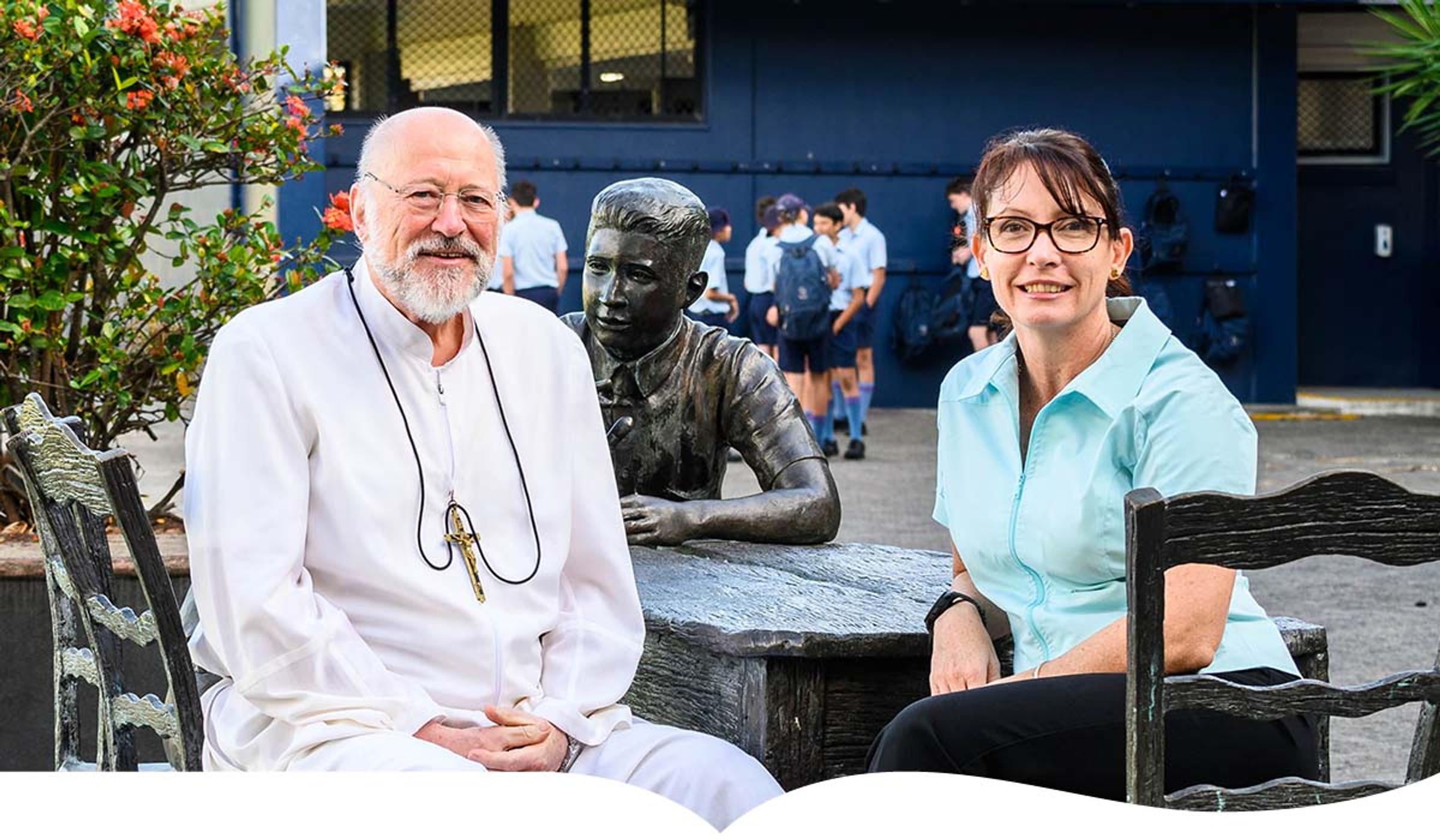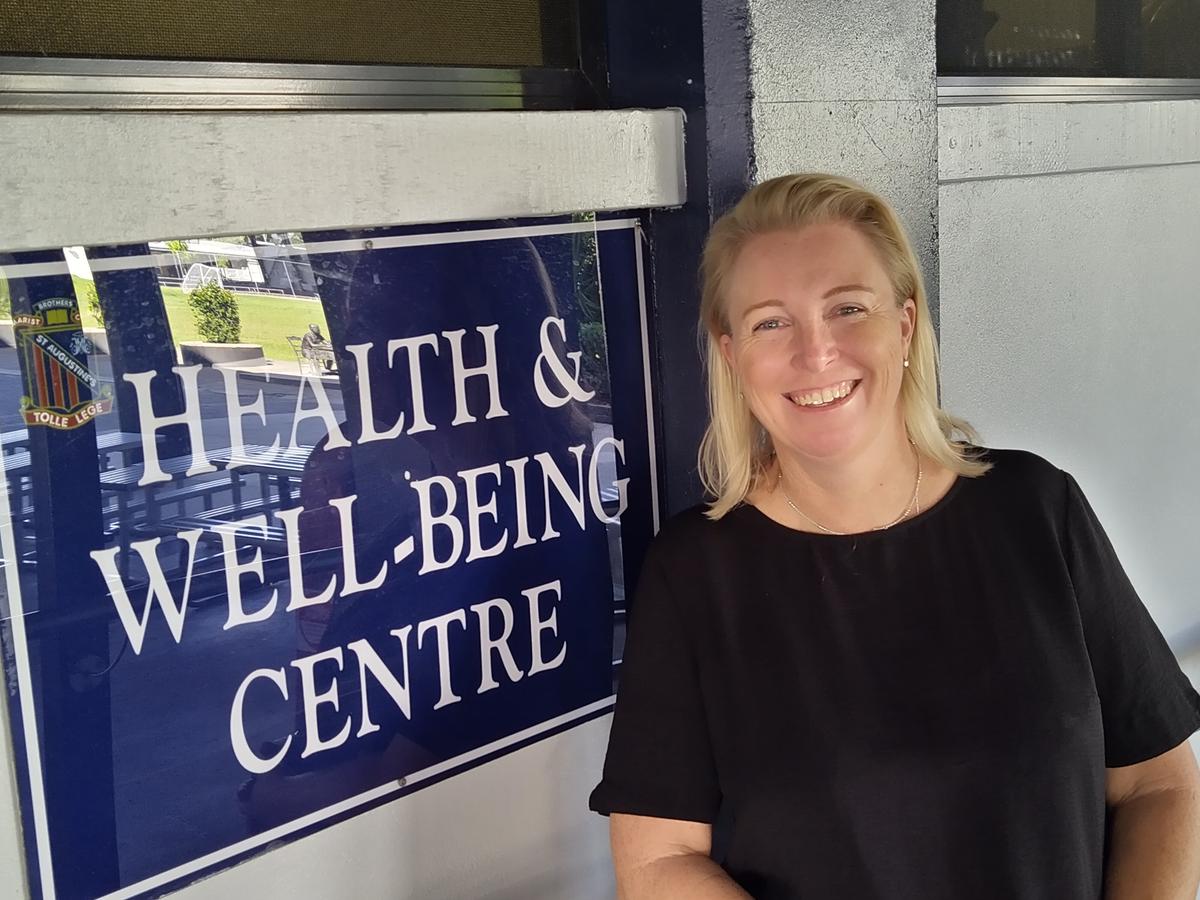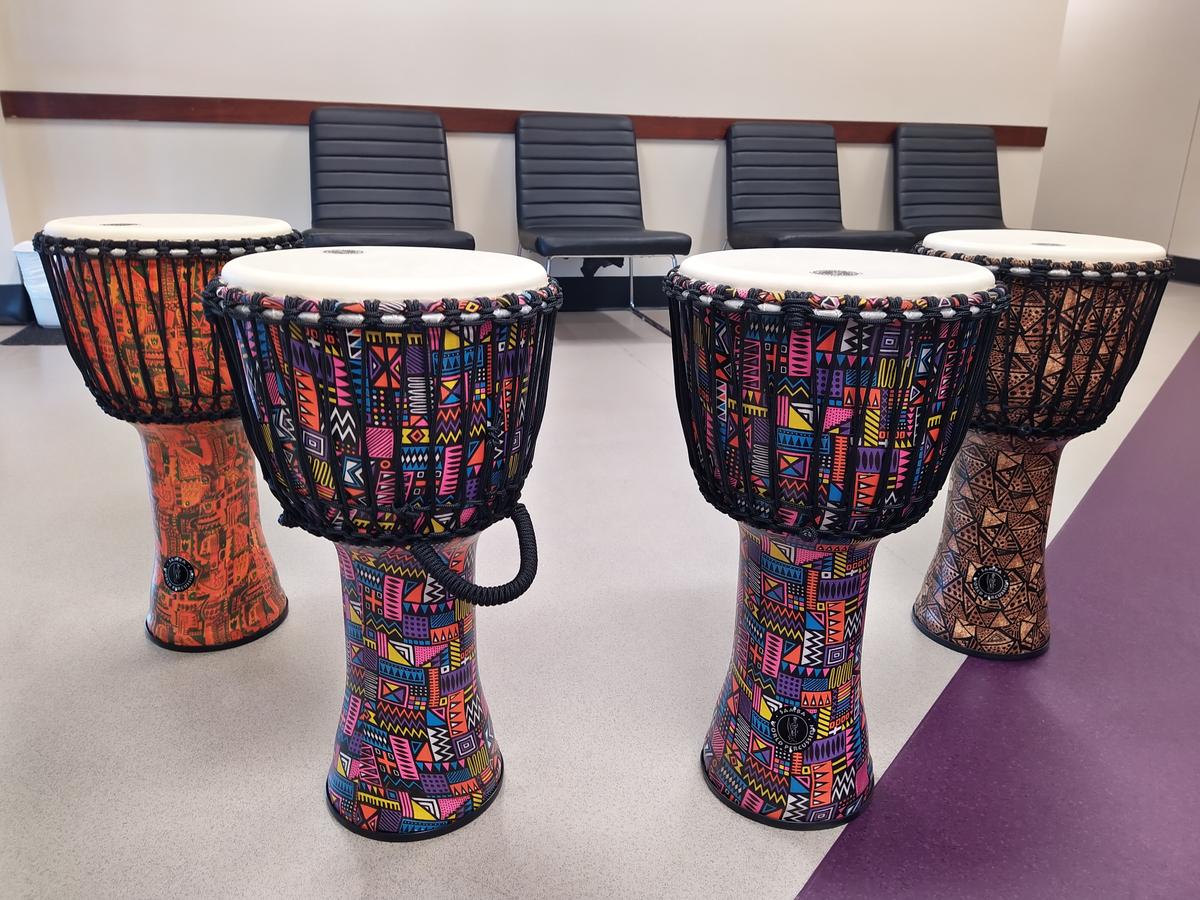COUNSELLING CONNECTIONS
News from college counsellors Br Roger Vallance FMS &
Mrs Marijke Keller

COUNSELLING CONNECTIONS
News from college counsellors Br Roger Vallance FMS &
Mrs Marijke Keller
Breakfast is often called the most important meal of the day, and for good reason.
Many studies have shown the health benefits of eating breakfast. It improves energy levels and the ability to concentrate in the short term, and can help with better weight management, reduced risk of type 2 diabetes and heart disease in the long term.


Why breakfast is so important
When you wake up from your overnight sleep, you may not have eaten for up to 12 hours. Breakfast replenishes the stores of energy and nutrients in your body.
Energy
During times of fasting (not eating), such as overnight, the liver breaks down glycogen and releases it into your bloodstream as glucose to keep your blood sugar levels stable. This is especially important for your brain, which relies almost entirely on glucose for energy. Eating breakfast boosts your energy levels and restores your glycogen levels ready to keep your metabolism up for the day. Skipping breakfast may seem like a good way to reduce overall energy intake. But research shows that even with a higher intake of energy, breakfast eaters tend to be more physically active in the morning than those who don’t eat until later in the day.


Essential vitamins, minerals and nutrients
Breakfast provides a lot of your day’s total nutrient intake. In fact, people who eat breakfast are more likely to meet their recommended daily intakes of vitamins and minerals than people who don’t. Essential vitamins, minerals and other nutrients can only be gained from food, so even though your body can usually find enough energy to make it to the next meal, you still need to top up your vitamin and mineral levels to maintain health and vitality.
Breakfast boosts brainpower
If you don’t have breakfast, you might find you feel a bit sluggish and struggle to focus on things. This is because your brain hasn’t received the energy (glucose) it needs to get going.
Studies suggest that not having breakfast affects your mental performance, including your attention, ability to concentrate and memory. This can make some tasks feel harder than they normally would.
Children and adolescents who regularly eat breakfast also tend to perform better academically compared with those who skip breakfast. They also feel a greater level of connectedness with teachers and other staff at their school, which leads to further positive health and academic outcomes.
Breakfast helps you make better food choices
People who eat breakfast generally have healthier diets overall, have better eating habits and are less likely to be hungry for snacks during the day than those who skip breakfast. Children who eat an inadequate breakfast are more likely to make poor food choices not only for the rest of the day, but also over the longer term. If you do skip breakfast, try a nutritious snack such as fresh fruit, yoghurt, veggie sticks and hummus, or a wholemeal sandwich to help you through that mid-morning hunger.
Skipping breakfast
Skipping breakfast was shown to be common in the most recent national nutrition survey of Australian children and adolescents, although most did not skip breakfast consistently.
While skipping breakfast is not recommended, good nutrition is not just about the number of meals you have each day. If you don’t have breakfast, aim to make up for the nutritional content you missed at breakfast with your lunch, dinner and healthy snacks.


Ideas for healthy breakfast foods
Research has shown that school children are more likely to eat breakfast if easy-to-prepare breakfast foods are readily available at home. Some quick suggestions include:
Can’t face food in the morning?
Some people can’t tolerate food first thing in the morning – perhaps because they have their last meal of the day quite late at night, they don’t find typical breakfast foods appealing, or because food first thing in the morning turns their stomach. If it’s hard for you to eat food first thing in the morning, you might like to try:
If you would like additional support or advice, please contact our counselling team on sac.counsellors@cns.catholic.edu.au or 4052 9111.
Welcome Sr Sacha Donaldson
Sacha comes from a background of working with Education Queensland for the past eight years and a strong background in paediatrics. Sacha has worked in university hospital settings along with previous experience at one of our Marist boarding schools, Ashgrove. A mother of three, Sacha has quickly established strong rapport with our boarders, male and female, and is getting to know our day students who present with their ailments. Sr Sacha has a strong interest and experience in the fields of allergy and immunology.
Sr Sacha’s days and hours are Monday–Thursday


7:30am to 3:45pm
All boys, boarder and day, who need to see the nurse are requested to: (Emergencies are different and need to be more direct.)
We are delighted to have Sacha as part of our Health and Wellbeing team, her contributions of high levels of skill, compassion and generous application to meet our students’ needs.
Drumming at Saints…


Marijke has recently completed the Rhythm2Recovery training and is keen to start using this training in her sessions. The Rhythm2Recovery format is an integrative model of practice combining experiential therapy techniques with cognitive behavioural therapy (CBT) influenced by the third-wave approaches of Acceptance and Commitment Therapy (ACT) and Positive Psychology (PP). These newer cognitive approaches are strength-based, and focus less on exploring problems and more on finding solutions. Although the R2R model owes much to the influence of these new cognitive approaches, it differs critically in balancing the cognitive with experiential, thus reducing the reliance on language, while simultaneously creating a safe and often uplifting therapeutic experience. Developmental and neuro-imaging studies show that for many people who enter therapy, highly active primal brain areas (limbic system, brain stem) are driving behaviour while the thinking, rational part of our brains (frontal lobes) are less active. (Van Der Kolk, 2014).
Boarding students will be starting a Community Drumming Circle on Thursday mornings before school, with more opportunities being rolled out soon.
Lastly
From the Hopefull Institute, we offer some parenting tips below. These are a useful reminder of what each of us can do to leverage our parenting, which includes self-care.


Counsellor contacts
sac.counsellors@cns.counsellors.edu.au
Ms Marijke Keller 4052 9136 mkeller@sac.catholic.edu.au
Br Roger Vallance 4052 9135 brroger@cns.catholic.edu.au